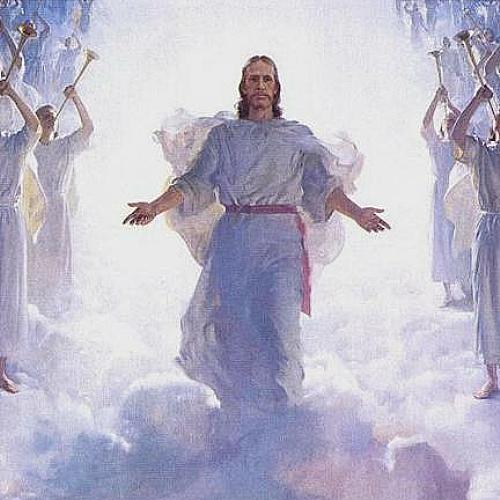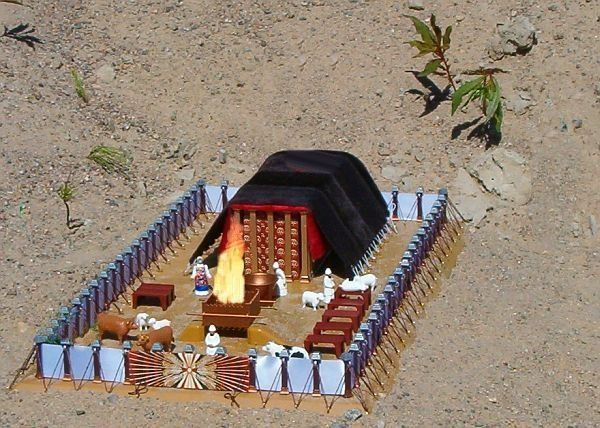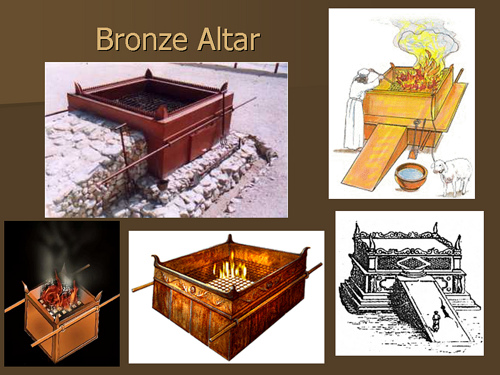Do YOU really think that if Yeshau (Jesus) returned today you would be ready to meet him? What about the Scriptures that say that our righteousness is as filthy rags, that the righteous are scarcely saved, that without holiness no one will see Elohim, and that we are lukewarm in our faith and need to go through the refiing fires of YHVH’s loving judgments to burn out the wood, hay and stubble from our lives? To be sure, Yeshua is not coming back for a bride with spot and wrinkle. So what to we need to do to get our lives ready to meet our Maker? Watch this video to learn the answers.
Category Archives: Yeshua/Jesus
Despise Not the Anointed Presence of YHVH

2 Samuel 6–7
2 Samuel 6 :1–2, 14–23, Bring up the ark…David danced…Michal…despised him. Some people who are purveyors of dead, stale and fossilized religious systems may turn their noses airward in diffidence at the tokens or symbols of YHVH’s presence. On the other hand, there are those of equally petrified and lifeless religious systems that look to religious icons and tokens to somehow breathe life into that which is spiritually dead. Such can easily become nothing more than thinly veiled idolatry and relic worship. Neither of these situations was the case with David when he sought the return of the ark of the covenant to Jerusalem. The ark was, for the Israelites, the symbol of Elohim’s blessed presence among them. With passionate zeal from a heart of worship, David longed for the ark’s placement in Jerusalem in a place of honor, and YHVH honored David’s desire. Yet there were those, even in David’s own family, who in an effort to keep old dead systems alive, despised the anointed presence and David’s zeal for it.
As physical humans, YHVH knows that we need points of contact to aid us in connecting to the deeper things of life—especially to those things of the heavenly realm. In the physical realm, a cherished photo of a loved one, a wedding ring, a souvenir from a trip, a gift from a friend or a family heirloom may serve to refresh our memories and to stir the emotions reminding us of the people, places or events behind the keepsakes. A souvenir is something we purchase while on a trip to remind us of good memories when we return home. The word souvenir is a direct borrowing from the French word of the same spelling meaning “to remember.” The power of keepsakes, heirlooms or souvenirs over one’s mind and emotions can be so strong that they can cause us to shed a tear, go into a depression, or bring us great joy. Our emotional attachments are so strong to them that often they will be the things that we will retrieve before anything else from our burning home. These things serve as points of contact with important events that have happened in our lives.
In our spiritual lives, we have similar points of contact. It could be a favorite Bible or another token of our faith and devotion to YHVH. The Bible reveals that anointing oil or an anointed cloth can be a point of contact with YHVH the Healer. Communion and baptism are both points of contact to higher spiritual truths. It is heresy, possibly even idolatry, to say that the water of baptism actually spiritually cleanses the sinner, or the bread and wine become the actual the body and blood of the Savior. But they are important in that they are a physical representation of deeper spiritual truths or realities.
Perhaps now we can appreciate better David’s zeal over the ark of the covenant’s return to Jerusalem. Embodied in that box was the very heritage and future of Israel, for it represented YHVH’s divine presence in the midst of his people. David recognized this and knew that, like Moses, unless YHVH was with him (Exod 33:14–15), the future looked bleak and he despaired about going forward without YHVH’s presence among them.
What are the points of contact in your spiritual life that serve as points of reference, contacts, milestones, road signs, or souvenirs either reminding you of or pointing you toward YHVH’s grace in your life?
David literally danced for joy before the people when the ark of the covenant paraded into Jerusalem. Do we have a similar emotional tenderness, enthusiasm and exuberance about spiritual things that we too, like David, can worship our Creator with total abandon? Or do we, like Michal, the daughter of King Saul and wife of David, criticize those who, like David, did so? In reality, everything in that ark pointed to Yeshua—the Living Word of Elohim. No doubt David, a spiritually attuned man after YHVH’as own heart, recognized the deeper symbolism of the ark and its contents, and he would have loved every bit of it unreservedly as evidenced by his zeal at the ark’s return. Similarly, do we still possess such a love for Yeshua, or have we lost it? (Read Rev 2:4–5.) What did YHVH-Yeshua threaten to do to the assembly at Ephesus if they did not reignite the passions of their first love for him?
2 Samuel 6:3–7, The house of Abinidab. While in the house of Abinadab, the ark’s presence had become so commonplace such that, as Matthew Henry states in his commentary, the familiarity of it engendered contempt (or at least a casual disregard) for it. Perhaps an irreverence for YHVH’s set-apart things had gripped Uzzah’s heart prompting him to touch that which was forbidden to do so. In our modern culture, and Christianity is not exempt from this, there is very little respect for authority, one’s elders, the law or other’s property, much less holy or set-apart things. In YHVH’s order of things, this is unacceptable behavior. Scripture draws strict lines of demarcation between that which is holy (kadosh or set-apart) and that which is commonplace or profane. YHVH has designated certain times, places, things and even people to be honored and respected—even revered. Are we in danger of incurring Elohim’s wrath, as Uzzah did, for not properly recognizing this?

2 Samuel 6:16, [Michal] despised [David] in her heart. In reality, what was Michal despising—David or the ark itself? Often humans in actuality are despising the things of YHVH even though they misdirect their disregard and spite toward his human agents. Scripture reveals that the children of Israel’s rebellion against Moses was really against YHVH himself. Similarly, if the ark was a prophetic picture of Yeshua, then for whom was Michal really showing contempt? Yeshua is a stone of stumbling and a rock of offense to many people. Many Christians claim to follow Yeshua, yet they despise his Word and his messengers. They also despise those who are passionate devotees and worshipers of Yeshua referring to them as right-wing fanatics, extremists, unbalanced, Bible-thumpers, Jesus freaks and other derisive terms. How passionate for Yeshua and his ways are you? What does YHVH say about this attitude? (Read Rev 3:15–19.)
Continue readingNatan’s Commentary on Hebrews 1–4

Hebrew 1
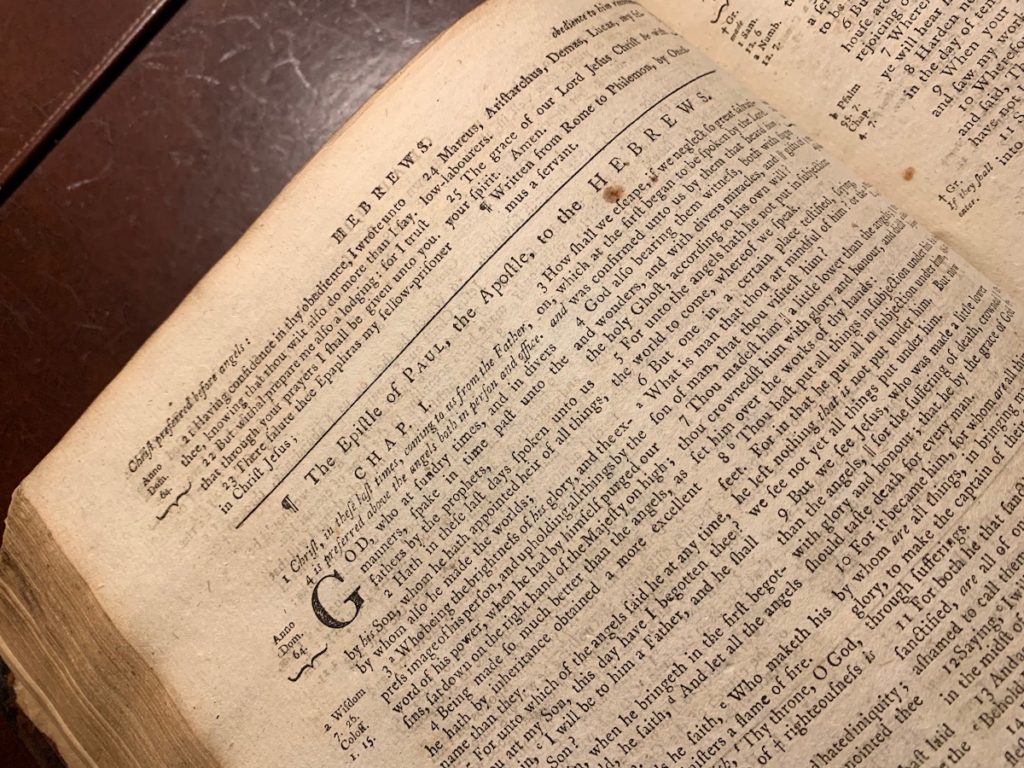
Hebrews 1:2, He made the worlds. Yeshua was the agency through which YHVH the Father created all things. (Also see v. 10.)
Hebrews 1:3, Upholding all things. Yeshua is not only the Creator of all things (v. 10), but he bears or carries all things, that is, he is the Sustainer of all things by his word and miraculous or dumanis power. Without him, everything would fall apart. This is why his death on the cross was such a cosmologically climactic event.
Hebrews 1:9, Loved righteousness and hated lawlessness. To the degree that we love righteousness, we will hate Torahlessness and vice versa. To love righteousness and the laws of Elohim is to love his him, to love his Word and to love Yeshua. To the degree we disdain his Torah is the degree that we disdain him and Yeshua the Messiah, the Word made flesh regardless of our protestations to the contrary, regardless of our religious activities and regardless of how much we throw our emotions at him and call it praise and worship. Obedience to his Torah-Word from Genesis to Revelation is barometer indicating the depth of our love for him.
Hebrews 1:8, 10, To the Son…You, YHVH. These two verses prove beyond a doubt that Yeshua is YHVH and that he is the Creator of the all things physical. (See also John 1:3, 10; Heb 1:2; Col 1:16).
Hebrew 2
Hebrews 2:1-2, Lest we drift away. One can lose one’s salvation (see also 1 Cor 9:27; Heb 6:4–6; 10:26 cp. 1 Tim 1:19; Matt 13:20–22) if one neglects (v. 2) and doesn’t carefully guard and maintain their spiritual relationship with YHVH and his Word.
Hebrews 2:7, A little lower. See notes at Ps 8:5.
Hebrews 2:18, He is able to aid. To receive the aid of Yeshua, our Great High Priest, all we have to do is to humble ourselves and recognize that we are sinners and need help, and then to ask him for help as well as to avail ourselves of the help that he has already give us, namely, the light of his Word, which, if we study and feed on, will guide us and keep us in the straight and narrow path.
Hebrew 3
Hebrews 3:3, He who built the house. Yeshua is the builder of his spiritual house—the church. Interestingly, his earthly father trained him to be a carpenter. Often the physical or natural and spiritual dimensions parallel each other. The idea of Yeshua being the Creator of all things including humanity (Heb 1:10; John 1:3, 10) and being the builder of his spiritual house provides us with an important truth. How is it that the death of Yeshua—one human—could pay for the sins of the whole earth—many humans? Simply this. Yeshua in his pre-incarnate state as the Word of Elohim created all humans. His life is more valuable than the lives of all those he created, since he is the Creator, even as life of the builder of a house has more value than all the houses he builds. This is why Yeshua could pay for the sins of the whole world, and why his life was more valuable than those of all the humans that have ever lived in the history of the world.
Hebrews 3:6, Hold fast…firm to the end. Ultimate salvation—the redemption of our bodies, our glorification and inclusion in the family of Elohim (or theosis) occurs after we have overcome the world, the flesh and the devil and remained firm to the end. The end is either our physical death, or our spiritual transformation or the first resurrection at Yeshua’s second coming.
Hebrew 4
Hebrews 4:2,The gospel was preached. The children of Israel heard the gospel message, even as it was preached in the time of Yeshua, the apostles as well as in our day. They were without excuse for not accepting the gospel message. As the writer goes on to show, they rejected it because of the hardness of their hearts. People still reject the gospel today for the same reason.
Hebrews 4:3, 5, 8, 9, 10, 11, Rest. The term rest is also a biblical Hebraic idiom or Hebraism (see Deut 12:9, 10; 25:19; 1 Kgs 8:56; 1 Chron 23:25; Ps 95:121; 1 Thess 1:7) for the rest from one’s enemies and that one obtains once one has come into the promised land of their inheritance that YHVH has prepared for his saints. For the Israelites, this was the physical Promised Land in which they settled after having defeated the Canaanites. For the saint, ultimately, this is the Promised Land of the kingdom of Elohim and the New Jerusalem, which they will obtain in the final sense at the second coming of the Messiah when they receive their glorified bodies at the resurrection during the millennium, of which the seventh day Sabbath is a prophetic picture.
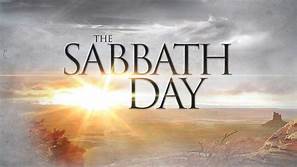
Hebrews 4:9–10, Rest. The Greek word sabbatismos means “a keeping of the Sabbath” and is derived from the Hebrew word sabbaton meaning “the seventh day or Sabbath.” In Hebrew the word for Sabbath is shabbat, which originates from the root verb shabat meaning “to cease, desist, rest.” Those who have entered into the Sabbath rest do so by following the example of YHVH the Creator who not only rested spiritually, but literally rested on the seventh day after the creation. He did not rest because he was tired, rather he did so to set this humans an example to follow, that is, to rest after six days of work.
Some people see this verse in Hebrews only as a mandate to rest from their spiritual works by putting their faith in Yeshua. Such a rest is only a partial rest. We must follow the example of YHVH who literally rested on the seventh day as well.
Yeshua in his preincarnate state was and is YHVH the Creator (Heb 1:2, 8,10; John 1:3, 10; Col 1:16). He kept the Sabbath as YHVH the Creator, and as Yeshua the Messiah as well. (If Yeshua didn’t keep the Sabbath, then he was a sinner in that he violated the law, and is not our perfect, sin-free Savior! If he kept the Sabbath, and the Gospels record that he did do so, we are to imitate him as his obedient disciples and imitators by doing what he did (1 Cor 11:1; 1 John 2:6).
Some deceptive Christian “teachers” will state that Yeshua broke the Sabbath by quoting John 5:18. First, again if Yeshua had broken the fourth commandments, he would have become a sinner (1 John 3:4), but we know that he was sinless (Heb 4:15), so this was not the case. Second, John records that it was the misguided Jews who were accusing Yeshua of sin, even though he had done nothing to break any of the Torah’s laws regarding the Sabbath. Third, the word “break” as used in John 5:18 is the Greek word luo, which in its primary definition means “to loosen literally or figuratively.” Yeshua was “breaking” or “loosening” the man-made, extra-biblical laws or constraints that the Pharisees had put on people with regard to how to keep the Sabbath. Yeshua was brushing aside or “breaking” or “loosening” some of these non-biblical and man-made restrictions to bring people back to a Sabbath observance that was less burdensome and restrictive. He in no way was violating the Torah, which would have made him a sinner.
When we rest both physically and spiritually, we are walking out a higher level of truth by walking out both the letter and the spirit of YHVH’s Torah-law as Yeshua taught us to do in his Sermon on the Mount (Matt 5:17–48), and as such, we have positioned ourselves before YHVH to receive more divine revelation from him (as well as blessings for obedience to his commandments).
In other words, the more we obey him faithfully in love, the more truth he can entrust us with for safekeeping, for he knows we won’t take for granted or trample his precious truth nuggets. To those who are faithful in much, YHVH gives more. That is how it works in his spiritual economy.
To this day, many of religious people keep the Sabbath by physically resting on this day (e.g. the Jews and some Christians), but they have missed the revelation of our spiritual rest in Yeshua. Conversely the mainstream Christians have rejected the physical Sabbath rest but they accepted the spiritual rest in the Messiah. Both sides have half the truth. Let’s put the two halves together and walk out the full truth—both the physical and the spiritual side of the Sabbath as Yeshua and his disciples did!
Keeping the seventh day Sabbath with this fuller understanding is another way of connecting the gospel message to its Hebraic, pro-Torah roots.
Hebrews 4:12, Soul and spirit. (See notes at 1 Thess 5:23.) Here the writer attests to the separateness of the soul and the spirit of man. They are not indistinguishable from each other.
Hebrews 4:14,Great high priest. How could Yeshua, a non-priest (non-cohen) be our Great Heavenly High Priest, since he was from the tribe of Judah and not from the tribe of Levi, much less a descendant of Aaron? (See notes at 7:14; Exod 19:2, 4).
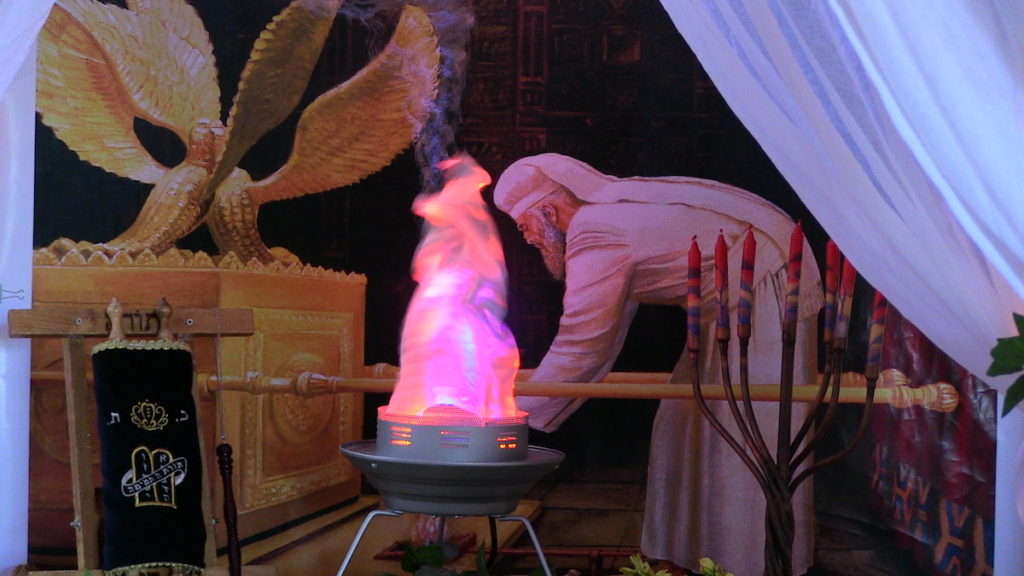
Hebrews 4:16, Come boldly. The veil (Heb. porechet) in the Tabernacle of Moses separated the compartments of the holy place and the holy of holies which housed the ark of the covenant and the was where the glory or presence of Elohim resided. The holy of holies pictured the heavenly throne room of Elohim, and only the high priest could enter it once a year on the Day of Atonement (or Yom Kippur). It was forbidden for anyone else to come into the holy of holies (except Moses, who as a prophetic picture of Yeshua the Messiah, who often went there to receive instructions from Elohim). That veil separating Elohim from the people thus preventing the common person from entering into the holy of holies was miraculously ripped in two when Yeshua died on the cross (Luke 23:45), thus symbolizing that now the way was open way for every saint to come boldly through the “veil” of Yeshua’s flesh (i.e. through the atoning blood of and a personal spiritual relationship with Yeshua; Heb 10:20) into the very presence of YHVH Elohim.
Deuteronomy 18 on Modern Baal Worship; True Vs. False Prophets; The Biblical Yeshua Vs. the Christian Jesus
Moses Prepares the Israelites for Future Prophets
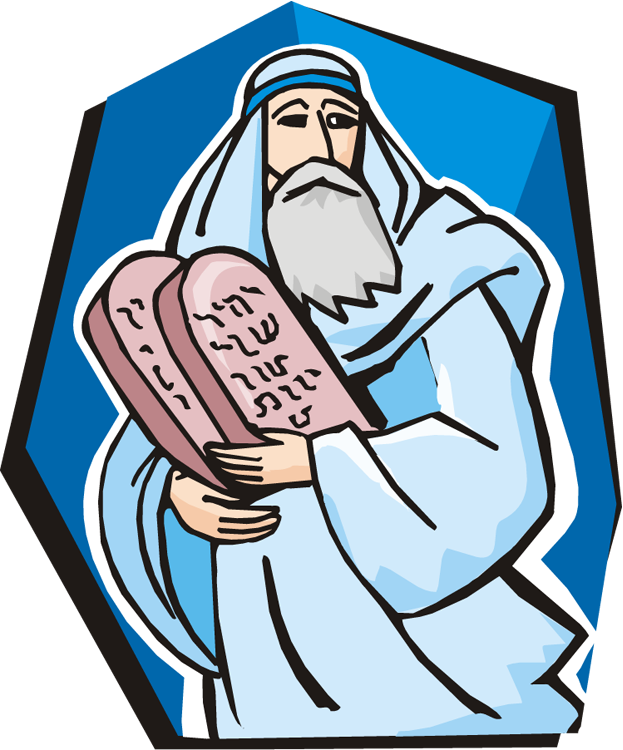
Before his death, Moses, the great prophet who spoke face to face with Elohim, prepares the children of Israel and their succeeding generations for the ministry of the prophet to come, as well as warns them against false prophets. The Theological Wordbook of the Old Testament (pp. 544–545) lays out Moses’ instructions to YHVH’s people in five steps. In Deuteronomy 18:9–22, YHVH formally proscribes any involvement with the bogus mantic (i.e. relating to divination or prophecy) practices of the surrounding nations (vv. 9–14). Then having stated that a line of prophets would speak or write with the same authority of Moses, he commanded the Israelites to render the prophet the same obedience he had commanded them to give Moses (vv. 9–14). Five certifying signs of a true prophet (Ps 74:9; Matt 12:38; Acts 2:22) were then were then given:
- The prophet must be an Israelite or “of the brethren” (vv. 15, 18).
- He must speak in name or voice of YHVH (vv. 16, 19, 20), and the death penalty being for those who falsely claimed to do so (v. 20; 18:1ff; 1 Kgs 18:20–40).
- Supernatural knowledge of the near future was to be a sign of the authenticity of the prophet’s divine appointment (vv. 21–22; 1 Kgs 22; Jer 28, esp. v. 17).
- The prophet might perform some other miraculous signs (Deut 13:1ff; 1 Kgs 18:24, esp. v. 36).
- The final test was strict conformity to or agreement with the previously certified revelations by Moses at first and by the prophets to follow (Deut 13:1–18). The fifth requirement is emphatic, since the entire thirteenth chapter is devoted to it.
Deuteronomy 18:10, One who causes his son or daughter to pass through the fire.
The Abominable and Idolatrous Practice of Abortion Is Modern Baal Worship!
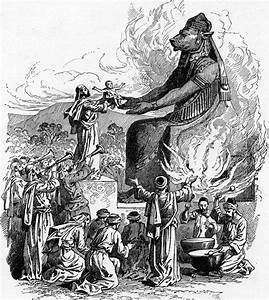
The ancient Canaanite practice of child sacrifice was done in honor of the Canaanite deity Moloch (see Lev 18:21 and 20:1–6). The name moloch Hebrew means “king”with the root of the word meaning “to rule or reign.” Child sacrifice (the ancient form of modern abortion or infanticide) though a pagan practice that YHVH abhorred, was practiced by both houses or kingdoms of Israel after they had drifted into spiritual syncretism with the heathen cultures around them (see 1 Kgs 11:7; 2 Kgs 16:3; 21:6; 23:10,13; Jer 7:31; 19:5; Ezek 16:20; 23:37).
Baal appears to be a synonym of Molach or Moloch (see Jer 19:5 and the Ency. Britan. eleventh edit., vol. 18, p. 676). After the children were sacrificed to this demon entity, the dead bodies were thrown into the garbage dump of the Valley of Hinnom or Tophet just below the Temple Mount in Jerusalem (Jer 7:31; 19:5–6). Apparently, the children were not burned alive, but were slain (by knife) like any other sacrifice before being thrown into the fire and then into the garbage dump (ibid.). The ancients sacrificed their children to appease their bloodthirsty gods of prosperity, sensuality and fertility (The Story of Civilization, vol. 1, by Will Durant, pp. 66–67, 297).
What can we learn from these random pieces of historical information concerning the ancient practice of child sacrifice? It was done in honor of their deity; in other words, their idol was the king that ruled their lives. What is the chief deity in modern America and most everywhere else in the world? Money and wealth? Sex and pleasure? Fun and entertainment? In ancient times, children were killed by a knife, thrown into the fire and then into the garbage dump. Today, what happens in America and many other countries with unwanted children? Parents abort their babies or have them murdered while being born (partial birth abortion) by using burning solutions to kill the baby in the womb and scalpels and scissors to hack the baby to pieces to aid in its extraction. Afterwards the dead baby is tossed into a dumpster or body parts are sold for “medical” purposes.

What reasons do parents give for killing their children? “It will cost too much to raise them and it’s too much trouble” (greed, hedonism and selfishness). “It will interfere with my career” (selfishness and greed). “I want to have pleasure without responsibility” (selfishness, hedonism and greed). Regardless of the excuses, the reasons today are the same as those of the ancients: prosperity, greed, hedonism, selfishness and so on. Are we any different or any more “civilized” than the ancients? YHVH called abortion an abomination (which means he viewed the practice as “disgusting, abominable,abhorrent, detestable or loathsome,” Deut 18:12).
Make no mistake about it. The modern practice of abortion is still the worship of the ancient murderous demon-god Moloch or Baal whether those practicing abortion know it or not. The reasons for engaging in this abominable practice are still the same, and the evil, murderous and demonic spirit motivating people to do it is still the same. Humans are no different today than they were thousands of years ago. Only the actors, costumes and venues have changed. The actions and evil heart of man remains the same without the transforming power of Word and Spirit of Elohim at work to convert sinful humans from the kingdom of darkness and the worship of and obedience to Baal (Satan) to the kingdom of light and the worship of and obedience to YHVH Elohim.
Do you abhor that which YHVH calls an abomination? In Scripture, does YHVH call children and fertility a curse … or a blessing? (See Deut 28:11 and Ps 127:3–5.)
Deuteronomy 18:15, A prophet from your midst, like me, shall YHVH your Elohim raise up for you.
Jewish and Christian Opposition to Moses’ Messianic Prophecy
Moses—A Prophetic Type of the Messiah
Obviously, Moses’ Deuteronomy 18 prophecy concerning the Messiah was fulfilled in the person of Yeshua. Who else in the history of the world could have fulfilled this prophecy? Despite this, the non-believing religious Jews, to their discredit, run around in philosophical circles attempting to prove that this verse does not apply to Yeshua. Similarly, the Christian church, in its own way, also disbelieves this prophecy. Let us examine some of the arguments attempting to circumvent the simple truth of this messianic prophecy.
Continue readingWho Is God of the Old Testament?
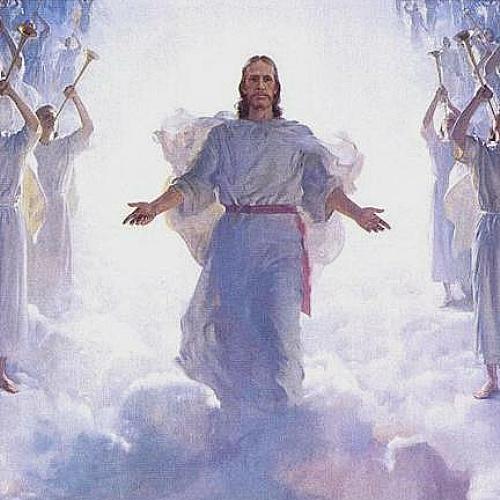
Acts 7:35, The Angel.
In Acts chapter seven verse 35 and the following several verses, Stephen makes a reference to an Angel. To whom is he referring: to YHVH the Father or YHVH the Son who became Yeshua the Messiah?
Angel is the Greek word angelos which has several meanings including the stereotypical meaning of the word angel. But the word angelos as well its Hebrew equivalent malak can also refer to a human messenger as well as to a divine messenger such as YHVH, the Word of Elohim or the preincarnate Yeshua the Messiah, as was the case with the “Angel” or Divine Messenger or YHVH who spoke to Moses from the burning bush in Exodus chapter three.
This same Divine Messenger or YHVH spoke to the Israelites from Mount Sinai when giving the children of Israel the Torah-law as Stephen state in verse 38.
Elsewhere, Paul goes on to say that the same Divine Entity, who later came to be known as Yeshua the Messiah, was the One who lead the Israelites in the wilderness and gave them water from the rock (1 Cor 10:4).
Moreover, Yeshua clearly states in John 5:37 that the Israelites did not hear the voice of his Father, YHVH the Father, in the wilderness. Thus, whose voice did they hear? Who was the Messenger or “Angel” to which Stephen makes reference in this verse? It was none other than the preincarnate Yeshua the Messiah who was the Word of Elohim to which John makes reference at the beginning of his Gospel (John 1:1) who become the Messiah (John 1:14).
Finally, in John 8:58, Yeshua states that he was the I AM of Exodus 3:14 that spoke to Yeshua out of the burning bush; Yeshua is YHVH the Son as opposed to YHVH the Father. The fact Yeshua was making the connection between himself and the I AM of Exodus is the reason that the Jews picked up stones in an attempt to kill Yeshua; they viewed his statements as blasphemous, since he was claiming to be deity.
Thus, when we connect all of these statements together by Stephen, Paul, John and Yeshua, we see that Yeshua in his preincarnate state, and not YHVH Elohim the Father, who was the God of the Old Testament who spoke to the patriarchs, to Moses as well as to the prophets.
The fact that Yeshua was the part of the Godhead who was the God of the Old Testament and not the Father (per se or directly) is contrary to what the mainstream church teaches and what most Christians believe.
With this in mind, how does the fact that Yeshua or Jesus in his preincarnate state as the One who gave the Israelites the Torah-law from Mount Sinai challenge the idea that the same Divine Being who later came as Yeshua the Messiah came to do away with the same Torah-law as the mainstream Christian church teaches? Is this prevalent teaching in Christianity not incongruent with the facts of the Bible? How does the fact that Yeshua in his preincarnate state gave the law to the Israelites change how one views “the Law of Moses?” Similarly, does YHVH’s statement in Malachi 3:6 that “I am YHVH, I do not change” as well as the statement in Hebrews 13:8 that “Yeshua the Messiah is the same yesterday, today and forever” not make more sense with respect to YHVH’s Torah-law, which is his unchanging and immutable standard of righteousness for all people for all time?
It is time for honest and truth-seeking Bible students and disciples of Yeshua to question and challenge many long held church traditions that are contrary to the plain and simple Truth of the Bible, and to bring their thinking and lifestyles into alignment with Truth!
Acts 7:37, A Prophet. Stephen is pointing out to the Jews that Yeshua was the fulfillment of Moses’ Deuteronomy 18:15 prophecy that “YHVH will raise up for you a Prophet like me from your midst, from among your brethren. Him you shall hear….”
Acts 7:38, He. Who is the “he” that Stephen is referring to here: the Prophet or Moses? The antecedent of he must be Moses, since in the same sentence he is juxtaposed with “the Angel.” As we discuss in our notes in verse s 35 and 37, that “Angel” was none other than the preincarnate Yeshua the Messiah.
Acts 7:53, Angels. Or human messengers, since this can be the meaning of the Greek word angelos.



